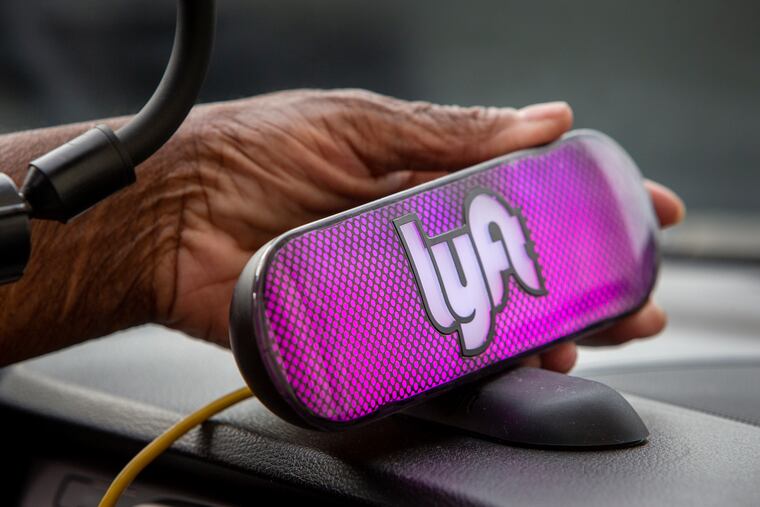Lyft is bringing back its cheaper carpooling option to Philadelphia
For the first time since the onset of the pandemic, the ride-share company is bringing back its more price-conscious option allowing strangers to travel together in select cities, including Philly.

Starting Monday, Philadelphia travelers can use Lyft’s cheaper carpooling option once again.
For the first time since the onset of the COVID-19 pandemic, Lyft is bringing back its more price-conscious option allowing strangers to travel together in select cities, including Philadelphia, Denver, and Chicago, the rideshare company announced last week.
The reintroduction of Lyft ridesharing in Philadelphia comes with new rules intended to curb the spread of the coronavirus, including: requiring all riders and drivers to wear masks, limiting carpools to two passengers, keeping the front and middle seats empty, not allowing eating or drinking during the ride, and giving both riders and drivers the option to cancel the trip without penalty if anyone isn’t following the rules.
Lyft also said it will offer riders the option to lock in a cheaper ride price when hailing a car ahead of time, allowing booking up to 30 minutes in advance. Another option on the app will allow riders to forgo “surprise pickups” and route changes during the trip. Eventually, Lyft said it plans to restore ridesharing in more cities across the United States.
“As the country reopens, we want our most affordable ride option to be available to our riders,” said Lyft president and cofounder John Zimmer in a statement. “After a year and a half without shared rides, people are going to love the updates we’ve made — no surprise pickups, knowing your full route before you get in, and a new option to book ahead.”
Lyft precedes its competitor, Uber, in bringing back carpooling options, which allow for more affordable ride costs. An Uber spokesperson told CNBC that it will “explore relaunching Pool when the time is right and will follow the guidance of health experts.”
Both companies suspended their popular carpooling options in March 2020, and saw dramatic decline in travel during the pandemic.
To buffer profits, Uber leaned heavily into its food-delivery service, while Lyft mainly focused on cutting costs until the pandemic lessened, the Associated Press reported. But in recent months, as vaccination rates rise and much of the country has begun to reopen, both Uber and Lyft have struggled to find enough drivers to meet surging rider demand, leading to higher fares and longer waits for cars.
Despite the surge pricing, CNBC reported that some drivers have been reticent to return to the road, citing continued pandemic safety concerns, riding out unemployment benefits, changing careers, and mounting frustration with the rideshare giants’ payout.